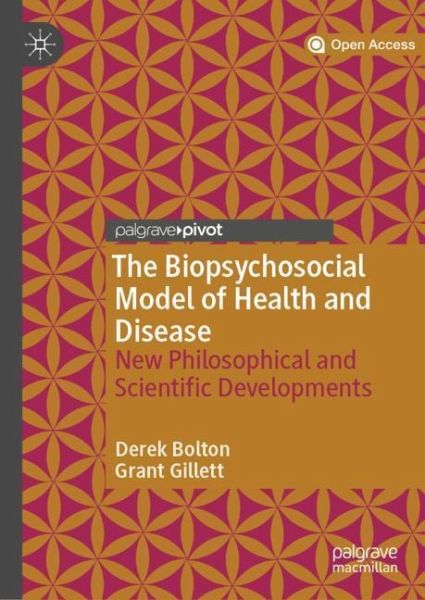
The Biopsychosocial Model of Health and Disease
New Philosophical and Scientific Developments
Versandkostenfrei!
Versandfertig in 6-10 Tagen
23,99 €
inkl. MwSt.

PAYBACK Punkte
12 °P sammeln!
This open access book is a systematic update of the philosophical and scientific foundations of the biopsychosocial model of health, disease and healthcare. First proposed by George Engel 40 years ago, the Biopsychosocial Model is much cited in healthcare settings worldwide, but has been increasingly criticised for being vague, lacking in content, and in need of reworking in the light of recent developments. The book confronts the rapid changes to psychological science, neuroscience, healthcare, and philosophy that have occurred since the model was first proposed and addresses key issues such ...
This open access book is a systematic update of the philosophical and scientific foundations of the biopsychosocial model of health, disease and healthcare. First proposed by George Engel 40 years ago, the Biopsychosocial Model is much cited in healthcare settings worldwide, but has been increasingly criticised for being vague, lacking in content, and in need of reworking in the light of recent developments. The book confronts the rapid changes to psychological science, neuroscience, healthcare, and philosophy that have occurred since the model was first proposed and addresses key issues such as the model's scientific basis, clinical utility, and philosophical coherence.
The authors conceptualise biology and the psychosocial as in the same ontological space, interlinked by systems of communication-based regulatory control which constitute a new kind of causation. These are distinguished from physical and chemical laws, most clearly because they can break down, thus providing the basis for difference between health and disease. This work offers an urgent update to the model's scientific and philosophical foundations, providing a new and coherent account of causal interactions between the biological, the psychological and social.
The authors conceptualise biology and the psychosocial as in the same ontological space, interlinked by systems of communication-based regulatory control which constitute a new kind of causation. These are distinguished from physical and chemical laws, most clearly because they can break down, thus providing the basis for difference between health and disease. This work offers an urgent update to the model's scientific and philosophical foundations, providing a new and coherent account of causal interactions between the biological, the psychological and social.














